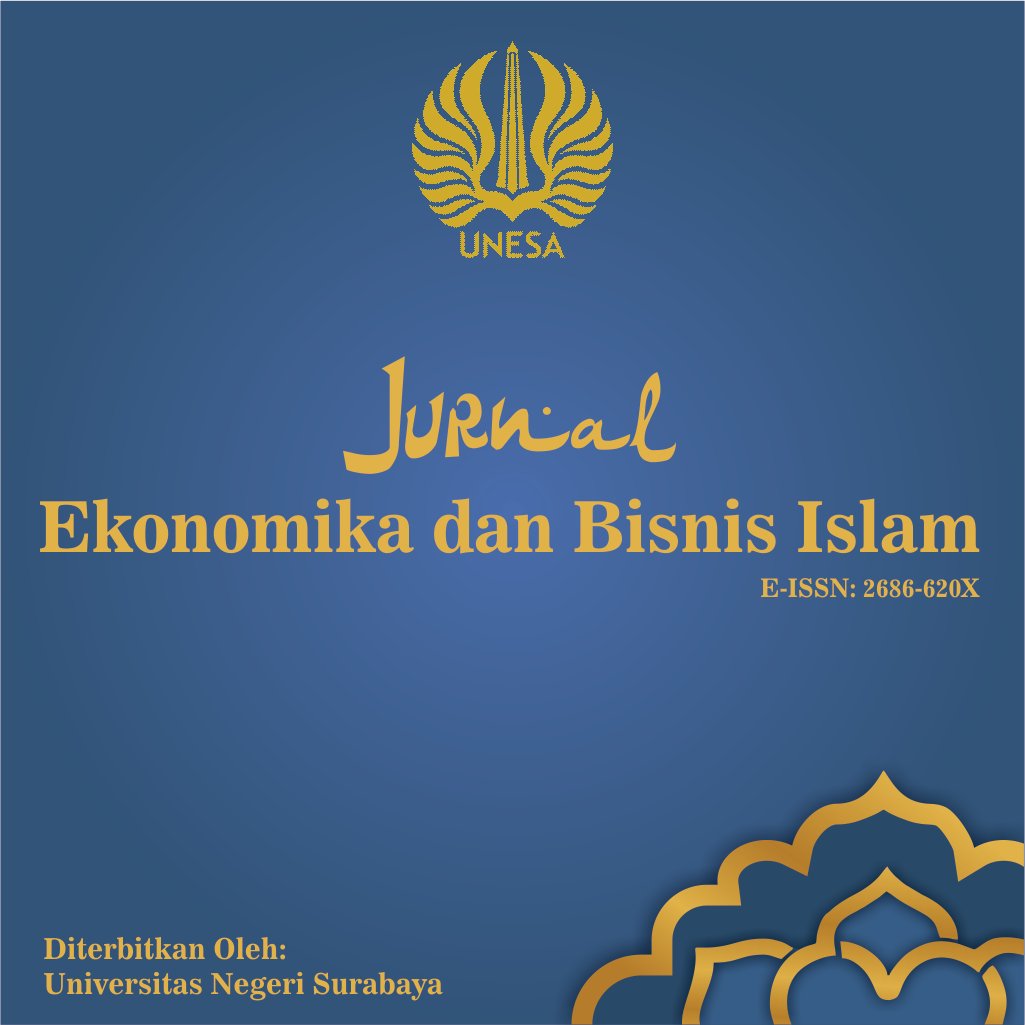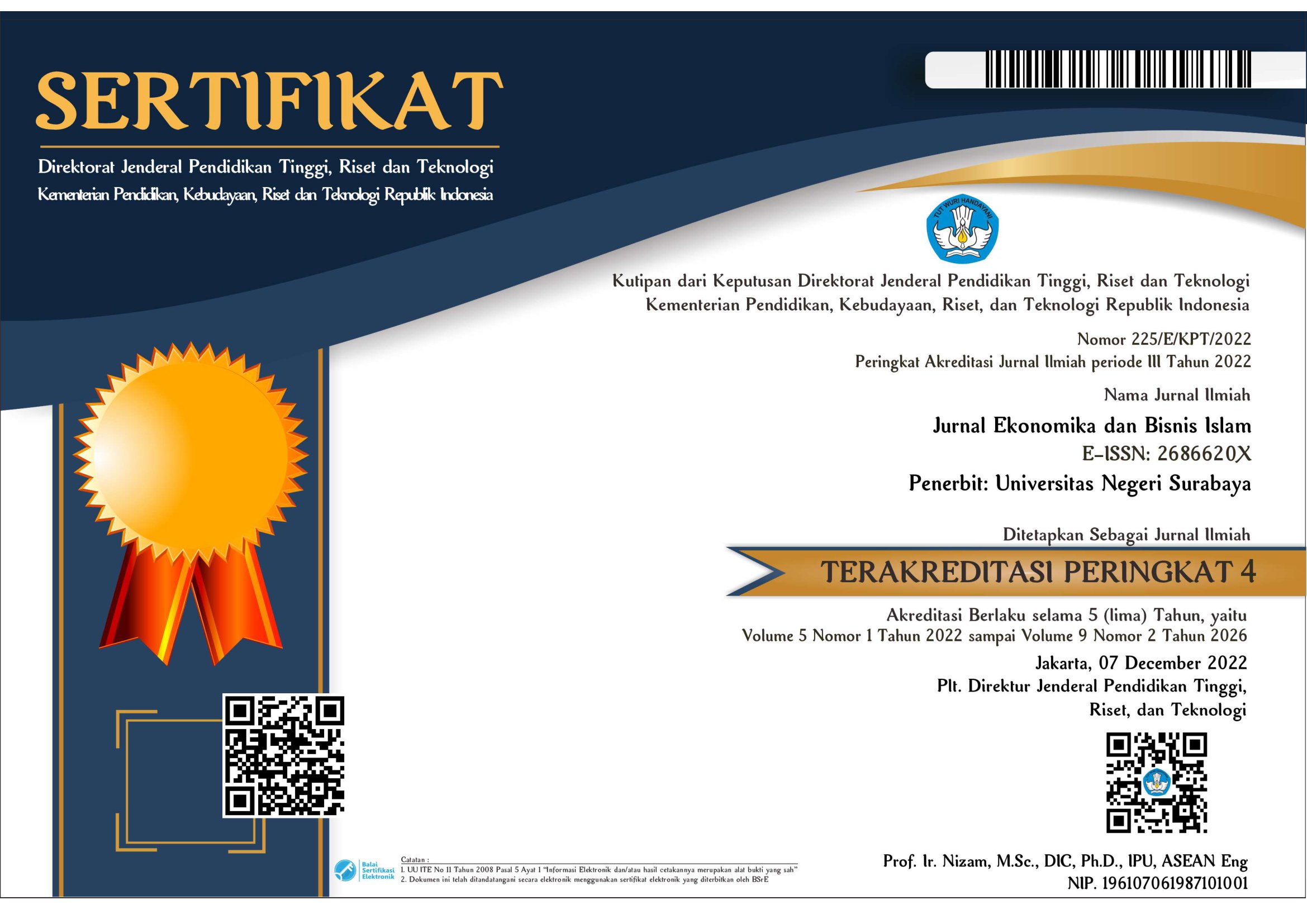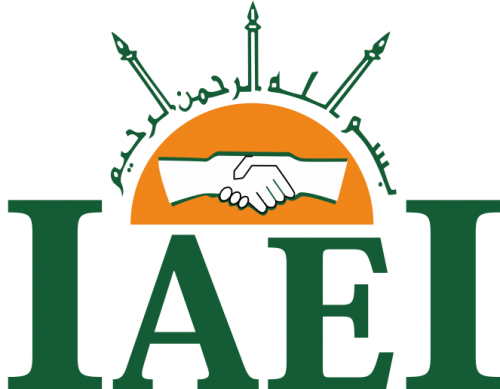Penerapan Etika Bisnis Syariah Terhadap Keberlanjutan Usaha: Studi Pada UKM Syariah di Surabaya
DOI:
https://doi.org/10.26740/jekobi.v6n3.p258-272Keywords:
Sharia Business Ethics, Business Sustainability, Sharia MSMEsAbstract
Business ethics includes establishing moral principles and behavior that business professionals are expected to adhere to. Business ethics plays an important role in creating a fair and transparent business environment for small and medium enterprises (SMEs), which in turn increases customer trust in the products and services offered. This research aims to analyze the concepts and principles of sharia business ethics, identify sharia business practices in SMEs, and measure the impact of implementing sharia business ethics on business sustainability in Surabaya. The method used is a mixed method which combines quantitative and qualitative approaches. The population in this research is SMEs in the city of Surabaya that meet the criteria for running a business according to sharia business ethics, with a sample of 100 sharia SMEs and interviews with 5 sharia SMEs in Surabaya. The research results show that the application of sharia business ethics contributes positively to business sustainability in SMEs in Surabaya, with increased customer trust and more harmonious business relationships. In addition, it was found that SMEs that adopt sharia principles tend to have a better reputation in the eyes of customers. However, this research also found limitations in terms of resources and knowledge regarding sharia business ethics, which could be an obstacle in implementing these principles. The implication of this research is that training and education related to sharia business ethics needs to be improved, especially for newly established SMEs.
References
Aedi Nur. (2010). Pengolahan dan Analisis Data Hasil Penelitian. Universitas Pendidikan Indonesia.
Al-Dubai, R., & Wali, A. (2019). Etika Bisnis Islami: Suatu Pendekatan Kontemporer.
Ali, I. (2016). Perspektif Islami tentang Pemasaran dan Perilaku Konsumen: Perencanaan, Implementasi.
Amirin, T. (2011). Populasi Dan Sampel Penelitian 4: Ukuran Sampel Rumus Slovin. Jakarta.
Arifin, J. (2017). SPSS 24 untuk Penelitian dan Skripsi. Kelompok Gramedia.
Arismunandar, S. (2013). Teknik Wawancara Jurnalistik. Academia.Edu.
Badar, K., Aboramadan, M., Alhabil, W., Dahleez, K. A., & Farao, C. (2022). Does Employee Relations Climate Mediate the Effect of Islamic Work Ethics on Organizational Performance? Evidence from Qatar. Employee Relations.
Crane, A., & Matten, D. (2016). Etika Bisnis: Mengelola Kewarganegaraan dan Keberlanjutan Perusahaan di Era Globalisasi (edisi ke-4). Pers Universitas Oxford.
Dodiet, A. (2013). Data dan Metode Pengumpulan Data Penelitian. Poltekkes Kemenkes Surakarta.
Ghozali, I. (2021). Aplikasi Analisis Multivariate Dengan Program IBM SPSS 26 Edisi 10. Badan Penerbit Universitas Diponegoro.
Hassan, K., & Harahap, S. S. (Eds. . (2018). Islamic Perspectives on Sustainable Business. Springer.
Hidayat, A. (2013a). Pengertian dan Tutorial Uji Heteroskedastisitas dengan Uji Glejser.
Hidayat, Anwar. (2016). Penjelasan Uji Normalitas dan Metode Perhitungan. Kanasius. https://www.statistikian.com/2013/01/uji-normalitas.html
Sanjaya. (2010). Process Standards Oriented Learning Strategy. Education.
Statistik, B. P. (2022). Laporan Perekonomian Indonesia 2022. Https://Www.Bps.Go.Id/Id/Publication/2022/09/16/2ff6faa58654862615a92019/Laporan-Perekonomian-Indonesia-2022.Html.
Sugiyono. (2018). Metode Penelitian Kombinasi (Mixed Methods). Alfabeta, cv.
Surabaya, D. K. dan U. (2023). Laporan Tahunan 2023. Dinas Koperasi dan UKM Surabaya.
Downloads
Published
How to Cite
Issue
Section
License
Copyright (c) 2023 Della Rista Pratiwi, Danang Rosadi, Danish Izza Nadira, Davelinda Syahirah

This work is licensed under a Creative Commons Attribution 4.0 International License.
This work is licensed under a Creative Commons Attribution 4.0 International License.
 Abstract views: 923
,
Abstract views: 923
, PDF Downloads: 1244
PDF Downloads: 1244














